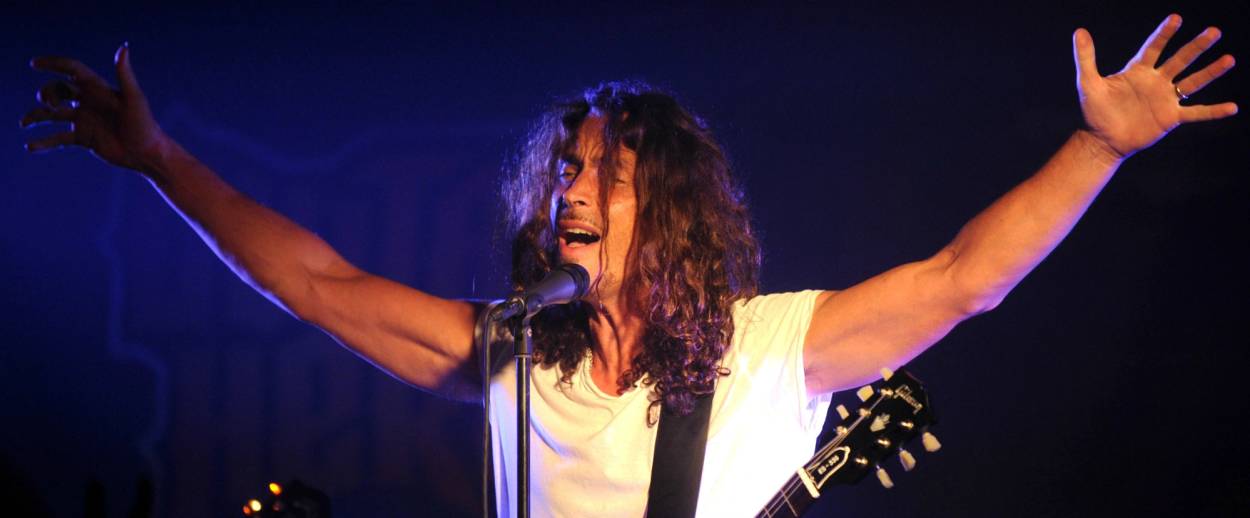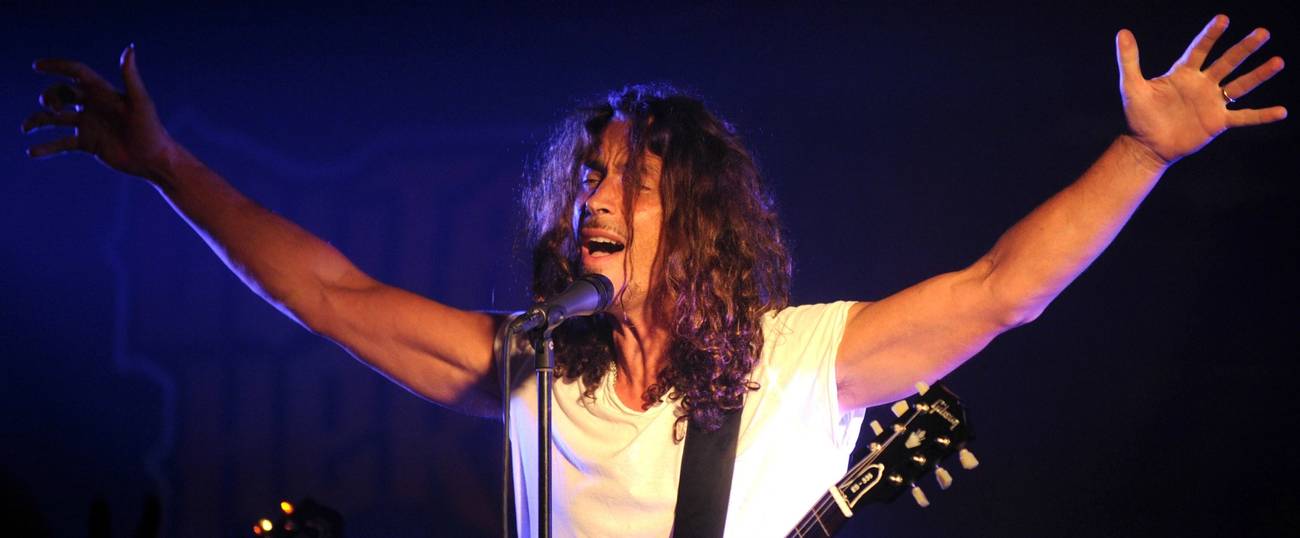Grunge Great Chris Cornell, Who Performed Regularly in Israel, Was One-of-a-Kind
The Soundgarden frontman is dead at 52




In certain circles—in my circle—Chris Cornell is a legend, someone whose rangy vocals could stamp any song with a force that might feel soft or hard, but never light. To my knowledge, most of Cornell’s songs—with Soundgarden or Temple of the Dog or Audioslave or solo—never seemed to come with much lightness, which is kind of the point. Grunge, at least for me, felt as though it was created for young adults going through something, or searching for something, which is maybe just how certain music speaks to certain youths anyway, regardless of genre.
This semester, during a unit about music criticism, I made 11 undergrads read an article about Temple of the Dog, a throwback grunge supergroup that contained members of both Pearl Jam and Soundgarden, with Cornell as the lead vocalist. I made them read it because they had recently completed a reunion tour, and because the story of the band’s one and only album is a concentrated shot of grunge history, and because not one of my 18- to-22-year-olds had ever heard of the group—and who’s to blame them? Their music is Kendrick Lamar and the Hamilton soundtrack and Vulfpeck and Sia…
When I was a zitty teen I blasted Soundgarden and Cornell’s “Seasons” from my Aiwa speakers, on my Walkman, in the car with my family on the way to Hebrew School. Angsty as I was, Cornell understood. Growing up, Cornell’s music hit me hard—and maybe my sister even harder. When I rocked Stone Temple Pilot’s Core or Alice in Chains’ Jar of Flies, she headbanged to Soundgarden’s Superunknown, the 1994 album that put them on the mainstream map because of hits like “Spoonman” and “Black Hole Sun,” whose music video MTV played ad nauseam. Looking back I’m happy that’s the song that got played out because it preserved the record’s best tracks, like “My Wave,” which features Cornell ooh-ing like honey during the bridge, or “The Day I Tried to Live,” which is just a tight, tight rock song that ends with the lyrics, “And I learned that I was a liar / Just like you.”
Over the years, I would joke with my friends about how Cornell had sold out (he cut his incredible hair, he modeled), and how we didn’t even like his music much anymore (although we would always try to match his incredible vocals during karaoke). But Cornell never stopped playing music despite years of drug and alcohol addiction, which he eventually kicked. During his career, Cornell performed a number of times in Israel—In Tel Aviv in June 2009, 2012, and 2014; and in Caesarea last year when he covered Prince’s “Nothing Compares 2 U” and “Seasons,” a solo song from the Singles soundtrack that will stand the test of time.
Jonathan Zalman is a writer and teacher based in Brooklyn.